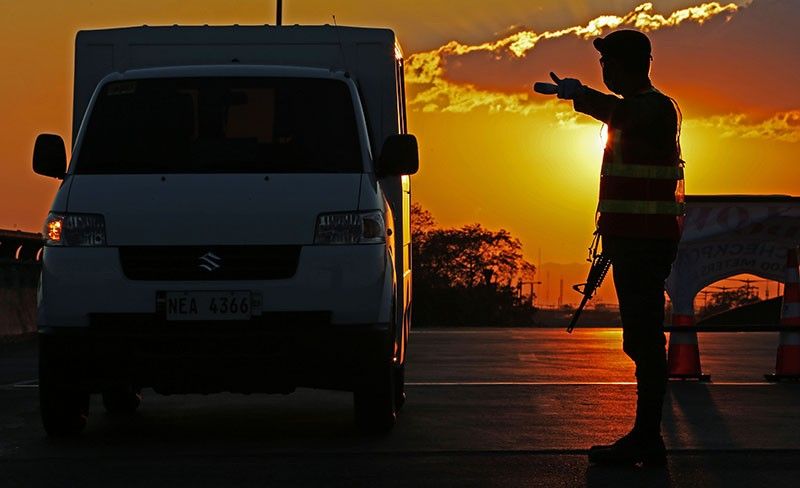Commentary: Fighting COVID-19 pandemic as non-traditional security challenge

In early 2018, a group of medical experts met in a World Health Organization (WHO) sponsored conference in Geneva to project how a global pandemic might take place in the third decade of the 21st century. They boldly predicted a pandemic in the near future that will be triggered by an unknown novel pathogen that had not yet crossed into human beings from animals.
Calling it Disease X, the pandemic would be a virus originating from animals and would likely emerge in an area where economic development has pushed people and wildlife to co-exist side-by-side. This ailment would probably be confused with known diseases early in its outbreak, causing it to spread quickly and silently as it would exploit growing networks of 21st century globalization, made possible by the dramatic increase in human travel, commerce and trade.
Consequently, this disease would avoid early detection and would be able to cross national borders and circumvent states’ efforts aimed at containing it. Medical specialists prophetically warned that it would afflict more people and cause higher mortality rate than the seasonal flu. More significantly, it would unravel financial and social systems and achieve the condition of being the first global pandemic of the 21st century.
The world now knows that Disease X is COVID-19 or coronavirus disease. The virus was first detected in November 2019 in the central Chinese city of Wuhan.
Unfortunately, Chinese officials suppressed information on the pneumonia-like epidemic that was spreading in Wuhan, Hubei province for about two months. They even punished the doctor who warned his fellow health workers about this emerging disease.
As a result, China wasted valuable time by delaying, for about five weeks, the implementation of necessary measures that would inform the public, curtail national and international travel, enable widespread testing,and warn the global community about the nature of this disease.
Even as the epidemic reached the scale of a major national crisis, Beijing tightly controlled information, shunned assistance from the US Center for Disease Control and Prevention (CDC), and curtailed WHO access into the city of Wuhan.
By early March 2020, WHO admitted that the said disease has been afflicting the world over far more rapidly outside of its country of origin while its global trajectory is still unknown. During the period, the never-before-seen virus had already infected more than 90,000 people in more than 70 countries and territories and killed more than 3,100 people—the majority of them in China.
WHO President Tedrod Adhanom Ghebreyeus observed that the world is “in an uncharted territory; we have never before seen a respiratory pathogen that is capable of community transmission, but which can also be contained with the right measures.”
Human disease as a non-traditional security challenge
Throughout history, diseases have plagued societies and civilizations, claiming more human lives than natural disasters and armed conflicts combined. In the “History of the Peloponnesian War,” historian Thucydides provided a graphic account of an epidemic that killed one third of the population of his city-state, Athens, and triggered lawlessness and widespread debauchery that afflicted Athenian society during the war against Sparta.
Diseases are the most dangerous and lethal threat to despite the advances in medical sciences since the early 19th century. History also shows that pandemics have occurred when previously isolated human populations converge.
Frequent and rapid movement of people around the world transports diseases to new parts of the world in ever-greater intensity. International air travel and shipping are conveyors for the speedy spread of lethal pathogens around the world, carried either directly by tourists or immigrants or even by fellow citizens coming from abroad.
The 21st Century as an era of pandemics
The first epidemic of the 21st century was the Severe Acute Respiratory Syndrome or SARs. It was brought to Hong Kong in November 2002 by a man from the town of Foshan, Guangdong Province in China.
In March 2003, the WHO thought that SARs was an influenza-type disease, as it was marked by similar type of symptoms—a high temperature, aching muscles, chills and a sore throat. Medical tests, however, revealed a new, unnamed disease that caused severe damages to the lungs. In a matter of five months, SARs spread into 32 countries with 800 cases and more than 900 fatalities.
Although short-lived, the 2003 SARs epidemic showed to the world how globalization is accelerating the spread of diseases among interconnected national societies in rapid pace. It took the Black Death over ten years to travel along the Silk Road from China to Europe. In the 21st century, a disease would arrive to its next destination in matter of hours on board a jet plane.
Recently, WHO also declared that stoppage of COVID-19 transmission through lockdowns would not be enough. Accordingly, a global public health system must be put in place to go after the virus and prevent its resurgence in the future. This means taking the fight to the virus thorough the development of vaccines, a declaration of war against a pathogen.
However, as the global society struggles to control and eradicate said disease, it ignores the big picture that pandemics in the 21st century are on the rise and that global society needs to realize the new realities and a wide spectrum approach to health security. There needs to be global integration and retooling of health systems for the prevention and control of potential pandemics.
Renato de Castro is a trustee and convenor of the National Security and East Asian Affairs Program of think tank Stratbase ADR Institute.
- Latest




























